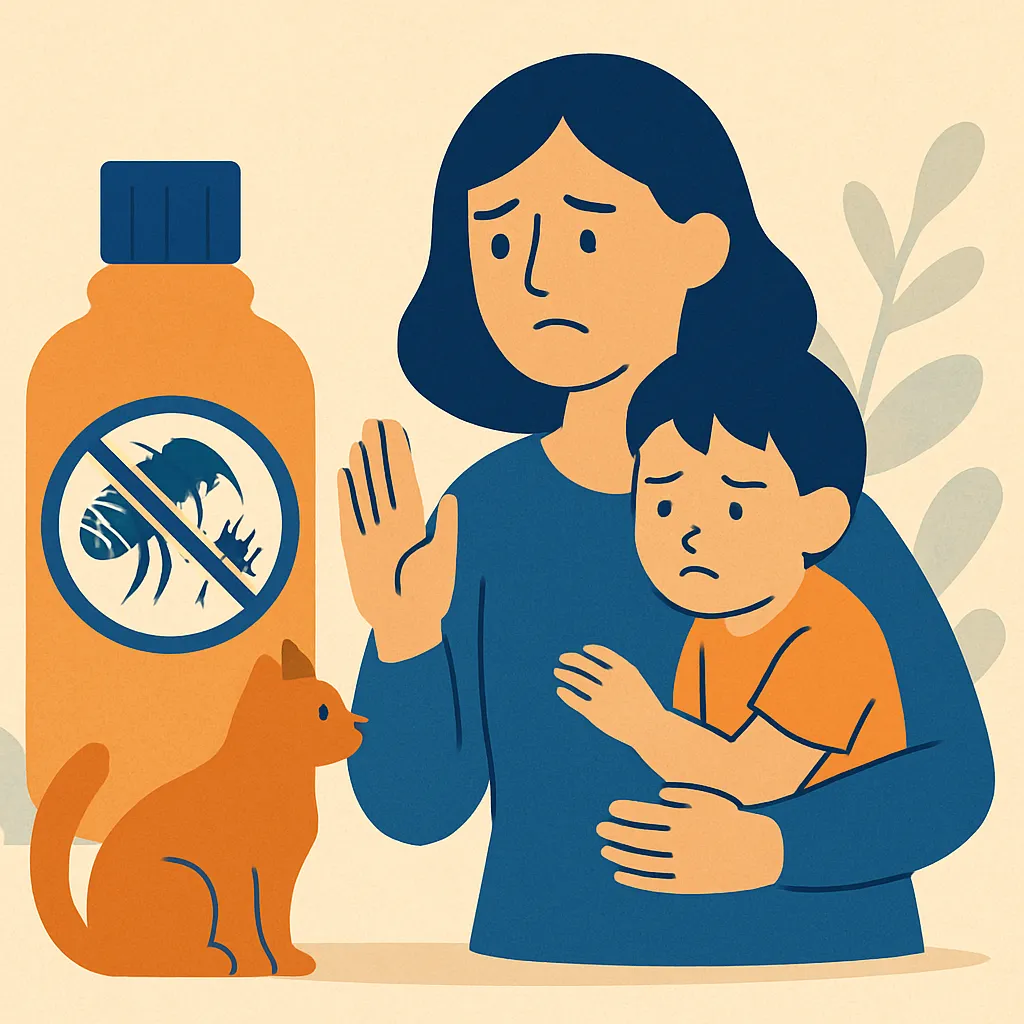When Prevention Masks Erasure
 A Response to Goodrich et al.’s Flea & Tick Study on Autism
A Response to Goodrich et al.’s Flea & Tick Study on Autism
Published last week in the International Journal of Environmental Research and Public Health, a study from UC Davis researchers claims that common pet insecticides — like flea and tick shampoos or skin treatments — may be linked to decreased cognitive and adaptive functioning in children with autism or developmental delays.
Let’s be clear: the study doesn’t say these products cause autism. But the framing, the metrics, and the silence all speak louder.
Titled “Pet Flea and Tick Control Exposure During Pregnancy and Early Life Associated with Decreased Cognitive and Adaptive Behaviors in Children with Developmental Delay and Autism Spectrum Disorder”, the paper is authored by Amanda J. Goodrich, Daniel J. Tancredi, Yunin J. Ludeña, Ekaterina Roudneva, Rebecca J. Schmidt, Irva Hertz-Picciotto, and Deborah H. Bennett. All are affiliated with UC Davis and its MIND Institute — a major research hub for autism and neurodevelopmental studies.
The study analyzed data from over 1,500 California families in the CHARGE study and found that certain flea and tick products, especially soaps, powders, and skin treatments, were correlated with lower “adaptive” and “cognitive” scores in autistic and developmentally delayed children. The strongest links were seen in children with autism who were exposed to pet care products during their second year of life.
But here’s what the paper doesn’t say:
- It doesn’t say whether these autistic children were thriving in other ways.
- It doesn’t say whether the “lower scores” actually meant lower wellbeing.
- It doesn’t ask what these traits might be doing — only whether they can be avoided.
And that silence matters.
Autism Isn’t a Pesticide Outcome
The problem here isn’t the hypothesis. Environmental exposures deserve study. The problem is the frame: autism as harm. Difference as deficit. Development as deviation. The assumption that if we could just scrub our homes a little cleaner, our children might come out “better.”
This is how eugenic logic slips in — not as open cruelty, but as quiet prevention.
To the researchers’ credit, they do acknowledge limitations: the small sample sizes, the potential for recall bias, the difficulty of pinning down active ingredients. But they do not question the tools they used to define success — the MSEL and VABS — both of which measure how well a child conforms to neurotypical milestones.
They also do not mention autistic co-authors, advisors or stakeholders at any point. Once again, autistic people are data points — not participants in how the story gets told.
The Danger Isn’t Just Scientific. It’s Narrative.
We are in a moment where autism causation is being weaponized by anti-science actors, including U.S. political candidates. Robert F. Kennedy Jr. continues to push discredited claims that environmental contaminants “cause” autism — often paired with rhetoric suggesting that we are “damaged” by modern society.
This paper will feed that fire.
Studies like this often treat lower test scores as signs of diminished capacity — and while that may not be the authors’ intent, it’s how institutions often interpret the data. This is precisely what gives cover to anti-autistic ideology wrapped in scientific language.
Let’s say this plainly:
Autistic children are not preventable tragedies.
We are not the collateral damage of flea shampoo.
If this study cared about autistic wellbeing, it would’ve included autistic voices. If it cared about support, not suppression, it would’ve asked: what environments help autistic kids flourish? Instead, it asked what makes us deviate — and how to trace it upstream.
That’s not support. That’s a roadmap for erasure.
So What Do We Do With This?
We don’t panic. We don’t deny that pesticides are serious. But we do reject the framing.
We call on researchers — especially those at institutions like the UC Davis MIND Institute — to include autistic people in their design teams, advisory boards and analytic frameworks. We ask them to choose outcome measures that don’t penalize difference by default. And we remind them that being “less adaptive” by neurotypical standards doesn’t mean being less alive.
To autistic families reading this: You are not a mistake. Your children are not failures of fetal chemistry. No matter what the next study says, no matter what narrative gets funded — we are still here. Still thinking, feeling, resisting, connecting and creating.
Autism isn’t a warning sign. It’s not a side effect of your pet’s flea meds.
It’s a way of being. And it deserves better than this.